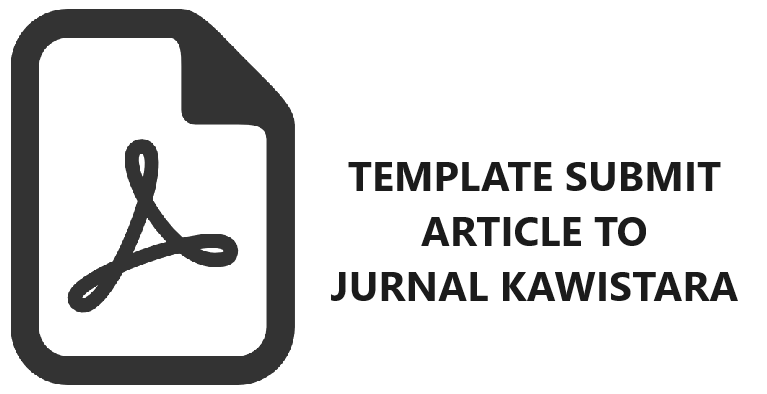Indigenous Experience as a Strategy to Develop Rural Tourism Identity
Heni Indrayani(1*), Candra Yudha Satriya(2), Astini Kumalasari(3)
(1) Universitas Dian Nuswantoro
(2) Universitas Dian Nuswantoro
(3) Universitas Dian Nuswantoro
(*) Corresponding Author
Abstract
Keywords
Full Text:
PDFReferences
Adisti, S. W. (2018). Pengembangan Desa Wisata Menari Tanon Kabupaten Semarang. Universitas Sebelas Maret Surakarta.
AS, A. (2017). Astra Kembangkan Desa Wisata Tanon. Retrieved April 12, 2020, from swa.co.id website: https://swa.co.id/swa/csr-corner/astra-kembangkan-desa-wisata-tanon
Burnett, K., Sanders, C., Halperin, D., & Halperin, S. (2020). Indigenous Peoples, Settler Colonialism, and Access to Health Care in Rural and Northern Ontario. Health and Place, 66(September). https://doi.org/10.1016/j.healthplace.2020.102445
Buttler, R., & Hinch, T. (2007). Tourism and Indigenous Peoples: Issues and Implications. UK: Elsevier Ltd.
Creswell, J. W. (1994). Research design: Qualitative and Quantitative Approaches. California: Sage Publications.
Dabphet, S., Scott, N., & Ruhanen, L. (2012). Applying Diffusion Theory to Destination Stakeholder Understanding of Sustainable Tourism Development: a Case from Thailand. Journal of Sustainable Tourism, First 2012, 1–18.
Fitri, M., & Triyadi, S. (2015). Community Cultures in Creating the Place-Bound Identity in Musi Riparian, Palembang. Procedia - Social and Behavioral Sciences, 184(August 2014), 394–400. https://doi.org/10.1016/j.sbspro.2015.05.108
Fuadi, D., Suharjo, S., Ratih, K., Utami, R. D., & Sarbini, D. (2020). Pengembangan Dewi Menari sebagai Desa Wisata Tanon Lereng Gunung Telomoyo di Kecamatan Getasan, Kabupaten Semarang. Buletin KKN Pendidikan, 2(1), 28–36. https://doi.org/10.23917/bkkndik.v2i1.11268
Hill, R., Adem, Ç., Alangui, W. V., Molnár, Z., Aumeeruddy-Thomas, Y., Bridgewater, P., … Xue, D. (2020). Working with Indigenous, Local and Scientific Knowledge in Assessments of Nature and Nature’s Linkages with People. Current Opinion in Environmental Sustainability, 43(January), 8–20. https://doi.org/10.1016/j.cosust.2019.12.006
Isnawati. (2018). Pemberdayaan Ekonomi dalam Harmoni Alam dan Tradisi di Desa Menari. Retrieved April 11, 2020, from suaramerdeka.com website: https://www.suaramerdeka.com/news/baca/156137/pemberdayaan-ekonomi-dalam-harmoni-alam-dan-tradisi-di-desa-menari
Kotler, P., Kartajaya, H., & Iwan, S. (2016). Marketing 4.0: Bergerak dari Tradisional ke Digital. Jakarta: PT Gramedia Pustaka Utama.
Littlejohn, S. W., & Foss, K. A. (2009). Encyclopedia of Communication Theory. USA: Sage Publications, Inc.
Lu, J., & Nepal, S. K. (2009). Sustainable Tourism Research: an Analysis of Papers Published in the Journal of Sustainable Tourism. Journal of Sustainable Tourism, 17(1), 5–16.
Nasibulina, A. (2015). Education for Sustainable Development and Environmental Ethics. Procedia - Social and Behavioral Sciences, 214(June), 1077–1082. https://doi.org/10.1016/j.sbspro.2015.11.708
Ohe, Y. (2020). Community-based Rural Tourism and Entrepreneurship: A Microeconomic Approach. In Springer. https://doi.org/10.1007/978-981-15-0383-2
Purnamasari, D., Hidayat, M. N., & Indrayani, H. (2017). Strategi Nation Brand sebagai Promosi Pariwisata Indonesia. Jurnal Komunikasi Dan Pendidikan Widya Komunika, 7(2), 32–49. Retrieved from http://jos.unsoed.ac.id/index.php/wk/article/view/1626
Rabe, N. S., Osman, M. M., & Bachok, S. (2014). Economics of Local People: Iskandar, Malaysia. Procedia - Social and Behavioral Sciences, 153, 463–478. https://doi.org/10.1016/j.sbspro.2014.10.080
Richards, G. (2018). Cultural Tourism: A Review of Recent Research and Trends. Journal of Hospitality and Tourism Management, 36, 12–21. https://doi.org/10.1016/j.jhtm.2018.03.005
Richards, G., King, B., & Yeung, E. (2020). Experiencing Culture in Attractions, Events and Tour Settings. Tourism Management, 79. https://doi.org/10.1016/j.tourman.2020.104104
Ruhanen, L., Whitford, M., & McLennan, C. lee. (2015). Indigenous Tourism in Australia: Time for a Reality Check. Tourism Management, 48, 73–83. https://doi.org/10.1016/j.tourman.2014.10.017
Ryan, C., & Aicken, M. (2005). Indigenous Tourlsm: The Commodification and Management of Culture. In Elsevier Ltd. https://doi.org/10.4324/9780080914008
Sharma, A., Pulido-Fernández, J. I., & Hassan, A. (2020). Sustainable Destination Branding and Marketing: Strategies for Tourism Development. Retrieved from https://books.google.com/books?hl=en&lr=&id=RonHDwAAQBAJ&oi=fnd&pg=PR3&dq=marketing+the+school&ots=nb64sqH6VL&sig=IsGUT1iH8Ul3YrpR72ucPPmermM
Sheldon, P. J. (2020). Designing Tourism Experiences for Inner Transformation. Annals of Tourism Research, 83(January), 1–12. https://doi.org/10.1016/j.annals.2020.102935
Susetyo, D. B., & Priyanto, P. H. (2018). Strategi Akulturasi dan Pengembangan Desa Menari Dusun Tanon - Kab. Semarang. Universitas Soegijapranata Semarang.
Wang, Y. C., Chen, P. J., Shi, H., & Shi, W. (2021). Travel for Mindfulness through Zen retreat Experience: A Case Study at Donghua Zen Temple. Tourism Management, 83. https://doi.org/10.1016/j.tourman.2020.104211
Xue, L., Kerstetter, D., & Hunt, C. (2017). Tourism Development and Changing Rural Identity in China. Annals of Tourism Research, 66, 170–182. https://doi.org/10.1016/j.annals.2017.07.016
Article Metrics
Refbacks
- There are currently no refbacks.
Copyright (c) 2021 Heni Indrayani

This work is licensed under a Creative Commons Attribution-ShareAlike 4.0 International License.
Jurnal Kawistara is published by the Graduate School, Universitas Gadjah Mada.











